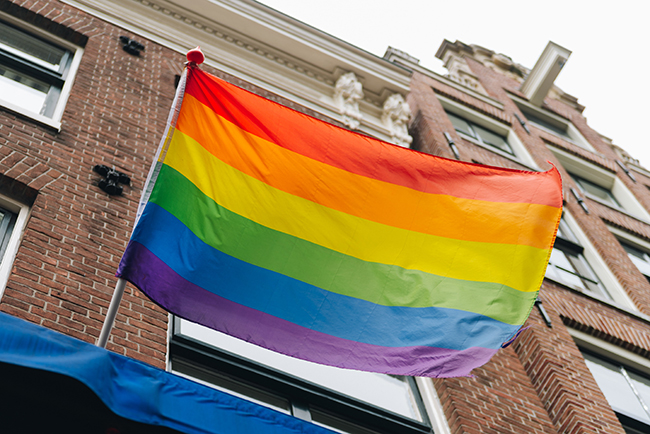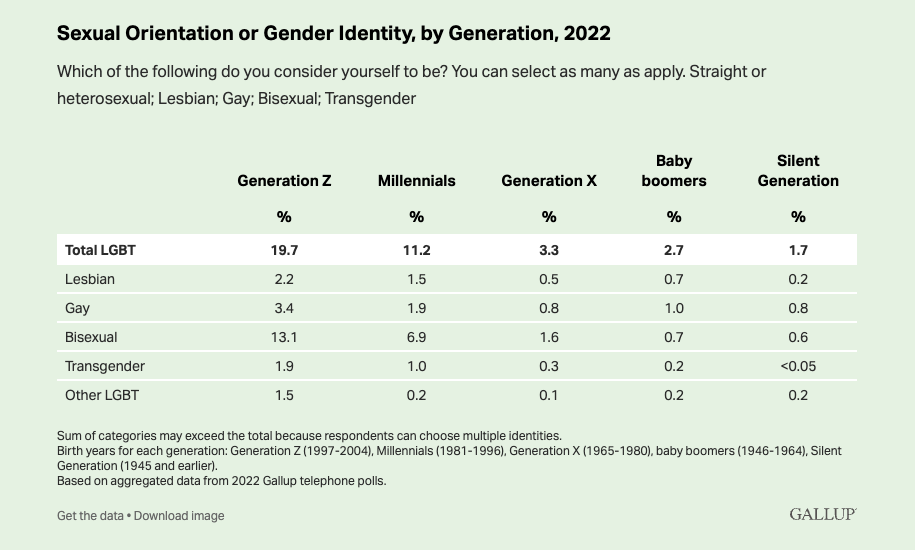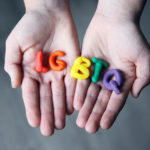
According to the latest Gallup survey, the rise in the percentage of Americans who identify as LGBTQ+ leveled out in 2022.
By Aaron Earls
After climbing steadily for almost a decade, the percentage of Americans who identify as LGBTQ remained steady at 7.2% in 2022, according to the latest Gallup survey.
While the percentage is more than double Gallup’s first measurement in 2012 (3.5%), 2022 levels remained statistically even with the previous year (7.1%). Most of those identifying as something other than straight or heterosexual say they are bisexual (4.2%). Fewer say they are gay (1.4%), lesbian (1%), or transgender (0.6%). Approximately 0.1% claim some other sexuality label.
After climbing steadily for almost a decade, the percentage of Americans who identify as LGBTQ remained steady at 7.2% in 2022, according to Gallup. Click To TweetLGBTQ+ identification is higher among younger generations. Almost 1 in 5 adult members of Generation Z, those born between 1997 and 2004, identify in that way (19.7%), with the overwhelming majority claiming to be bisexual (13.1%). More than 1 in 10 millennials (11.2%) say they are LGBTQ+. Among older generations, the percentages are much smaller—3.3% of Generation X, 2.7% of baby boomers, and 1.7% of the silent generation.
Gen Z and LGBTQ+ identity
Sean McDowell, author of “Chasing Love,” isn’t surprised by the percentage of Gen Z identifying as LGBT. “Young people today have grown up with a nearly ubiquitous exposure to LGBTQ narrative about identity and relationships in schools, the media, social media, Netflix, and many other avenues,” he said. “It’s also personal to them because virtually every young Christian today knows someone who identifies as LGBTQ.”

Additionally, many Americans, particularly young adults, identify as both non-heterosexual and Christian. A UCLA study published in 2020 found 47% of that population say they are religious. Among LGBT adults who say they are religious, more than 3 in 4 (77%) identify as a Christian, including 28% who are Protestants.
“Young Christians today are far more influenced by cultural ideas about identity and sex than many pastors realize,” said McDowell. “Don’t assume kids know what the Bible teaches about sex and identity or why it says it. Most Christian students have little depth in regard to their theology of sexuality.”
Frequently, young women are more likely than young men to identify as LGBTQ+. They especially need love, compassion, and help in addressing these issues, according to Katie Fruge, director of the Center for Cultural Engagement and the Christian Life Commission at the Baptist General Convention of Texas. “Young girls are barraged daily with mixed messages about sexuality, gender, and identity, so their struggles and questions are reasonable,” she said. “As believers, we need to allow our young girls to ask tough and valid questions about identity but provide answers that affirm their identity in Christ—fearfully and wonderfully made.”
Communicating truth
The increase in identification and the inevitable rise in questions among students means churches must seek to communicate truth effectively, according to Ben Trueblood, director of student ministry at Lifeway.
“The truthfulness of the biblical commands surrounding gender and sexuality have not changed. God’s design and desire is for us to enjoy His good gift of sex within the boundaries of a committed, marital relationship between one man and one woman,” he said. “Churchgoers, however, desire and need more from those who are equipping them than simply a restatement of the biblical principle. The surrounding conversation is louder and closer to home than ever before. And it takes skill and courage to faithfully apply that principle today.”
For churchgoers, particularly students and young adults, this issue is personal. “The uncomfortable reality of this topic is that the people in the seats every Sunday are likely to have far more relationships and interactions with people from the LGBTQ+ community than many pastors in pulpits,” Trueblood said. “Church leaders must be educated on the thinking and movements of the culture. Then they can help their people live with godliness and biblical fidelity even within relationships with people they disagree with.”
“Church leaders must be educated on the thinking and movements of the culture. Then they can help their people live with godliness and biblical fidelity even within relationships with people they disagree with.” — @bentrueblood Click To TweetEven among pastors, 48% say they personally know someone who is transgender, according to a Lifeway Research study. Most U.S. Protestant pastors (72%) still believe it is morally wrong for an individual to identify with a gender different than the sex they were born. In the most recent survey of the American public, half agree. According to Gallup, 51% of Americans say it is immoral to change genders.
Equipping churchgoers
As pastors think about LGBTQ+ people, few have been asked to perform a same-sex wedding. Almost 9 in 10 (87%) say they’ve never been asked. Another 9% say it has happened in the past five years. And 3% say it occurred more than five years ago, essentially unchanged from 2016.
Most pastors also say their congregation has discussed the areas in which LGBTQ people can serve the church. Almost 3 in 10 (28%) say anywhere, 22% say at least one area of service but not anywhere, 31% say nowhere, and 19% say it hasn’t been discussed or they’re not sure.
Trueblood says churches will have to address these issues and help their churchgoers faithfully and lovingly apply biblical truth. “Churchgoers need to see they can both live biblically and be in relationships with those who may hold different beliefs,” he said.
“These things don’t happen automatically, however. They take time, effort, study, and a pastoral willingness to step into the mess and discomfort of real-life issues. The natural human tendency is to stop at discomfort. But God is calling us, through the power of the Holy Spirit, to push through discomfort for the sake of discipleship.”











